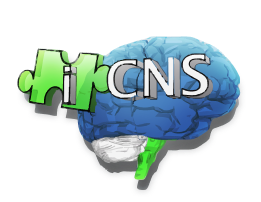
Update: Due to concerns about social distancing and the restrictions against gatherings of 10 or more, iCNS has RESCHEDULED this CEU Seminar for JUNE. Please check back for updates as the situation develops.
iCNS Presents: A CEU Seminar Series for LPCs and LMFTs
Topic: "Neuro This, Neuro That," but what is it, and why should I care anyway?
Date: June 12, 2020
Time: 8:30am - 4:30pm
Abstract:
The 21st Century has become the "Neurological Age," as we learn about the functioning of the brain and more about how the mind and body connect and interact. For mental health professionals, that means new tools, techniques, and ways of explaining and processing what's going on in our clients' lives, but you don't have to be a neuroscientist to do this well! This workshop will break it down into manageable chunks, as we discuss some of the most applicable aspects of neuroscience for counseling and therapy. I'll explain the basics of how the brain influences sensation, cognition, emotion, feeling, perception, decision making, and ultimately, behavior! We'll talk about some of the best ways I've found to make a difference in my clients' lives, drawing on more than 15 years of clinical practice and education, and not just from a neurofeedback standpoint! Many of the techniques and tools I'll teach you are inexpensive, or even free, while others require equipment or other resources, but the goal of this workshop is to explain, and illuminate, how neuroscience informs the mental health world.
Learning Objectives:
In this workshop, learners will:
- Examine how both CACREP and COAMFT have pushed for competency in neuroscience
- Learn basic neuroscience concepts as they apply to mental health, including neurotransmitters, lobes and hemipheres of the brain and their associated functions, homeostasis vs. allostasis, and the functions of the Vegus Nerve, HPA Axis, and the 3 brains (cerebral, cardio, and enteric)
- Learn the 6 key focuses in counseling, and how the Counselor/Therapist can become a neurobiological regulator
- Look at how to personally utilize neuroscience to help guide self care and professional care
- Learn how to "hack" the Relaxation Response biologically, in both stressful situations and neutral ones, in order to encourage learning and personal growth
- Describe Dr. Siegel's Hand Model of the Brain and explain it's significance to the therapeutic relationship as a common language
- Apply concepts of Self-Regulation to Mindfulness and Self-Compassion
-and more!

Comments